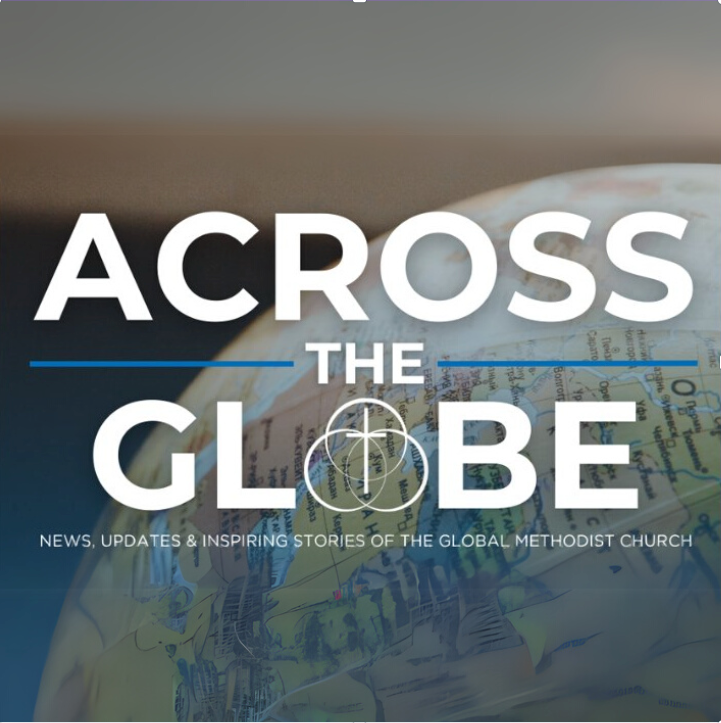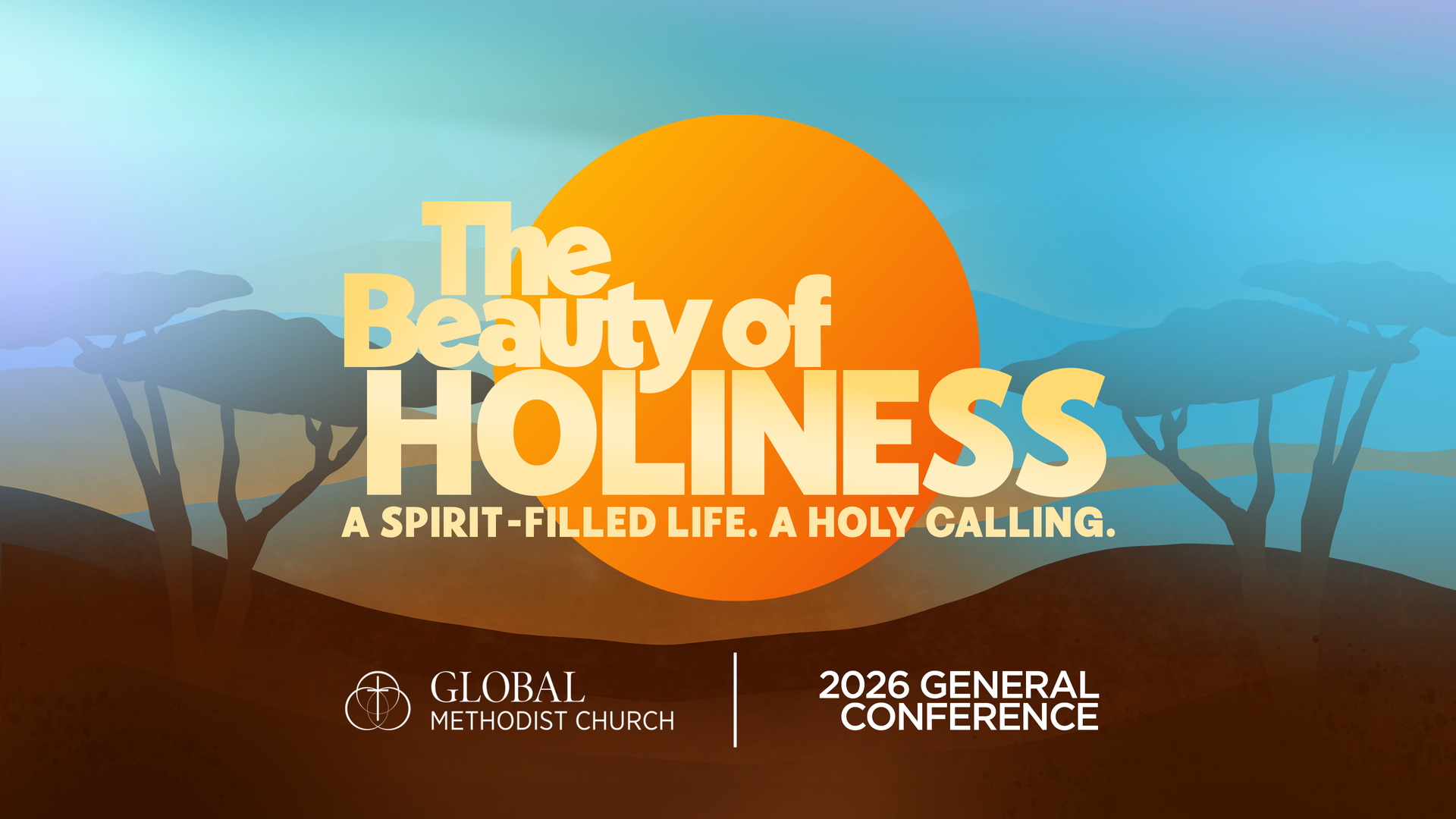Frequently Asked Questions
Your questions answered clearly and simply.
1. What is the Global Methodist Church?
It is an international denomination committed to making disciples of Jesus Christ and spreading scriptural holiness across the globe. The Global Methodist Church is filled with warm-hearted, Jesus loving, and Holy Spirit inspired people. We are grounded in Scripture and the life giving confessions of the Christian faith found in the Apostles’ and the Nicene Creeds.
To begin your journey with GMC, we invite you to take a look at our Introductory Video & Resources.
2. How does a congregation join the Global Methodist Church?
To join the Global Methodist Church, the following motion must be adopted by a simple majority at a congregational meeting:
“I move that _____________ Church become a member congregation of the Global Methodist Church, that it affirms and endorses the doctrinal standards (Part One), Social Witness (Part Three), and church governance of the Global Methodist Church as set forth in its Book of Doctrines and Discipline, and agrees to be accountable to such standards, witness, and governance. Our leadership and trustees are authorized to take all actions necessary to implement this motion.”
A person authorized by the church must then complete and submit a digital church application. As part of completing the digital church application, you must upload the minutes of the meeting at which the motion above was adopted. Church applications can only be submitted using the digital church application. If you have questions about the church application process, please email applications@globalmethodist.org.
3. Does the Global Methodist Church have a directory of its local member churches?
Yes, we have a Find A Church page where you can search for churches near you by zip code. Additionally, you can visit the Find a Conference page for links to all annual conference websites which will provide you with local information and further assistance in locating churches in your area.
4. Is the Global Methodist Church and its local US churches tax-exempt, and are donations to them tax-deductible?
The Global Methodist Church is recognized as a tax-exempt organization in the US under Internal Revenue Code (IRC) § 501(c)(3). The Internal Revenue Service (IRS) determination letter is attached here. All contributions, made on and after March 18, 2022, to the Global Methodist Church are deductible as charitable contributions to the extent applicable by governing federal and state laws.
The IRS suspended receiving and processing group exemption applications in 2020. Thus, the Global Methodist Church cannot apply for a group exemption covering local churches which are part of the Global Methodist Church.
However, the law firm of Gammon & Grange, PC, which represents the Global Methodist Church, has issued its opinion letter stating that local churches are exempt from taxation pursuant to a mandatory exception in IRC § 508(c)(1)(A). Local churches are not required to file an application (IRS Form 1023) with the IRS to qualify as tax exempt under IRC §501(c)(3). Contributions to such local churches in the United States are eligible for tax deduction pursuant to IRC §170(b)(1)(A).
While affiliated churches are automatically considered 501(c)(3), certain vendors and local governments may require additional documentation from a third party to prove their 501(c)(3) status. Churches that complete the Tax-Exempt Confirmation Form will receive an official letter via email within one week that can be used to prove their 501(c)(3) status.
When the IRS reopens the process for applying for a group exemption under IRC §501(c)(3), the Global Methodist Church will file for such a group exemption to cover local churches who are members of the Global Methodist Church. To preserve the opportunity to be included in a group exemption granted to the Global Methodist Church in the future, local churches who are members of the Global Methodist Church should not file a separate application for recognition of IRC §501(c)(3) status, but instead should rely on the automatic exemption pursuant to IRC §508(c)(1)(A).
5. How do clergy (ordained or licensed as a local pastor) transfer to the Global Methodist Church?
To apply to be a clergy member of the Global Methodist Church in the US, the clergyperson must complete and submit a digital clergy application. As part of completing the digital clergy application, you will upload certain documents such as a copy of ordination certificates or licenses evidencing your current ministerial credentials, diplomas from educational institutions, and transcripts of courses completed. During completion of the digital clergy application, you will initiate a background check as part of completing the digital clergy application. Clergy applications can only be submitted using the digital clergy application.
If you have questions about the clergy application process or need assistance with international applications, please email applications@globalmethodist.org.
6. What schools are on the Global Methodist Church’s list of Recommended Educational Institutions?
7. What is an “Alternative Educational Pathway” for pursuing ordination as a deacon or elder in the Global Methodist Church?
Alternative Educational Pathways to ordination include –
Wesley Biblical Seminary’s course of study program. The program is offered in online, hybrid, and also has in-person formats making it widely available to candidates for ordination whose personal circumstances do not permit them to enroll in degree programs. See the following article for more information:
Recommended Educational Institutions and First Course of Study Program Announced by the Global Methodist Church
United Theological Seminary’s (Dayton, Ohio) Certificate in Theology and Ministry (CTM) and its Advanced Certificate in Theology and Ministry (ACTM) is another alternative pathway toward completing the educational requirements for ordained ministry. See the following article for more information:
Second Alternative Educational Pathway Approved
As we continue to develop and introduce additional alternative educational pathways, we will keep you informed about new programs and opportunities as they become available!
8. What provisions will be made for retirement, health insurance and life and disability for US member clergy and lay employees of the Global Methodist Church?
Please visit our
Benefits page here to access information about our US benefits program and to locate members of the Benefits Team.
9. Who is leading the Global Methodist Church?
The General Conference sets the mission, vision, and governance of the GMC. Delegates elected by each annual conference around the world in proportion to their membership meet every six years to consider and adopt proposed changes to the Book of Doctrines and Discipline. The General Conference also elects those who serve in leadership during the ensuing sextennium. In between General Conferences, the Connectional Council leads the Global Methodist Church.
The Connectional Council leads the Global Methodist Church. Prior to January 1, 2025, the Transitional Leadership Council led the denomination during its transitional phase, which ended on December 31, 2024. For further information regarding the leadership of the Global Methodist Church, refer to the Book of Doctrines and Discipline.
10. What are the core beliefs of the Global Methodist Church?
That the one God – the Father, the Son, and the Holy Spirit – has created all things; that Jesus Christ, through the power of his cross and Resurrection, is the Lord and Savior of all the world; and that the Holy Spirit empowers the people of his church to worship and praise God and to proclaim the Gospel throughout the world in word and deed. (For a full accounting of the church’s core beliefs see its
Book of Doctrines and Discipline).
11. Is the Global Methodist Church an ethnically and racially diverse church committed to equality for all?
Yes! As a truly global church the denomination is ethnically and racially diverse and it insists on the equal treatment of all the church’s members.
12. Do women serve as clergy in the Global Methodist Church?
Yes! Women, like men, are called to serve in the Global Methodist Church and are entitled to serve at all levels of the Global Methodist Church.
13. Will local churches that join the Global Methodist Church own their property and assets, or will they hold them in trust for the general church?
According to the Global Methodist Church’s Book of Doctrines and Discipline local churches own all their property and assets. Since it is widely assumed that the local churches, and annual conferences and central conferences that are strongly inclined to join the Global Methodist Church do not want to be part of a denomination with a “trust clause” (i.e., where local church property is held in trust for a general church), it is almost certain the Global Methodist Church will never adopt one. Therefore, local churches in the Global Methodist Church will own all their property and assets in perpetuity.
14. Does the Global Methodist Church have bishops, and if so, will they be bishops for life?
According to the Global Methodist Church’s Book of Doctrines and Discipline, bishops may serve up to two (2) 6-year terms. Once they serve their terms, they may either return to ministry in a local church or to some other area of service in the general church. Visit our Assembly of Bishops page to meet our current, active bishops.
15. How do I become endorsed by the GMC?
For information on the endorsement process, applications, and requirements for being endorsed please contact the office of Endorsing Ministries at endorsingministries@globalmethodist.org
16. What is the role of laity in the Global Methodist Church?
Laypersons are recognized as equal partners with clergy in the ministry of the church. All annual conference and general church commissions and councils are required to be at least one-half lay members.
17. How are bishops held accountable?
Bishops are elected by the General Conference and held accountable to the doctrine and discipline of the church on a global level. Any concerns raised about an individual bishop are handled by a globally representative body of laity and clergy (excluding other bishops). Serious offenses could result in suspension, removal from office, or even loss of clergy credentials. Bishops are expected to promote and uphold the doctrine and discipline of the GMC as determined by the General Conference and model a life of holiness in accord with our behavioral standards.
18. What is an annual conference?
The annual conference is the basic regional body of the church. It consists of all the churches and clergy in a given area, such as a state, several states, or a country. In rare instances, an annual conference may be non-geographical based on affinity (such as the Korean American Conference). Annual conferences range in size from a dozen churches to several hundred. The annual conference coordinates and supports the ministry of all the churches and clergy in the conference. It gets its name ("annual") from the fact that all the clergy and a lay representative from every church meet together at least once a year to determine the budget, set the policies and direction, and elect the leaders of the annual conference.
19. What is the General Conference?
The General Conference is the legislative body that meets once every six years to set the mission, vision, and governance of the GMC. Each annual conference elects clergy and lay delegates to the General Conference, with the number of delegates based on the relative size/membership of each annual conference. Delegates consider proposed changes to the Book of Doctrines and Discipline and elect the general church leaders, including bishops and members of the general church commissions and councils.
20. How will the governance of the GMC adapt over time?
The Book of Doctrines and Discipline can be modified at each General Conference. Local members and church groups, organizations, or commissions can submit petitions to change, delete, or add language to the BDD. These petitions will all be considered by the delegates to the General Conference, who may modify, accept, or reject the proposed changes. Changes to the Doctrinal Standards, Constitution, and Social Witness statements require a super-majority vote in order to maintain consensus and consistency. The final version of the BDD adopted by each General Conference will remain in effect until January 1 following the meeting of the next General Conference.



